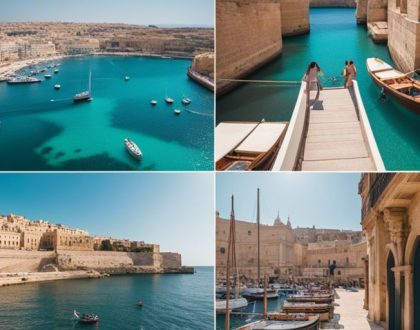iGaming Licensing in Malta – The Process

Malta, known as a hub for iGaming companies, offers a streamlined and efficient process for obtaining an online gambling license. With Malta Gaming Authority (MGA) being a reputable regulator in the industry, the licensing procedure is rigorous yet rewarding. Understanding the intricacies of Malta’s iGaming licensing can be the difference between success and failure in this highly competitive market. From the initial application to ongoing compliance requirements, it is crucial for operators to navigate the process with precision to ensure their operations are legal and secure. In this blog post, we will investigate into the key steps, requirements, and benefits of obtaining an iGaming license in Malta, shedding light on this vital aspect of the online gambling industry.
Licensing Framework in Malta
Malta Gaming Authority (MGA) Role
A crucial player in the iGaming licensing process in Malta is the Malta Gaming Authority (MGA). This regulatory body is responsible for issuing licenses and ensuring that all operators comply with the established regulations and guidelines. The MGA conducts thorough due diligence on applicants to guarantee the integrity and trustworthiness of license holders. Any operator seeking to operate in Malta must adhere to the strict standards set by the MGA to maintain a valid gaming license.
Types of iGaming Licenses Offered
When applying for an iGaming license in Malta, operators have several options to choose from, depending on the type of services they wish to offer. The main types of licenses include Class 1, Class 2, Class 3, Class 4, and Class 4A. Each class of license caters to different gaming activities, such as casino games, sports betting, poker, and more. Any operator must carefully assess their business model to determine the most suitable license for their operations.
| Class 1 | For operators providing games based on random number generators. |
| Class 2 | For operators providing fixed odds betting. |
| Class 3 | For operators providing peer-to-peer gaming, poker networks, and betting exchanges. |
| Class 4 | For software vendors who intend to provide a gaming platform to other licensees. |
| Class 4A | For hosting and managing operators supporting a Class 1, 2, or 3 license. |
Another imperative aspect to consider when choosing a license is the associated fees, requirements, and compliance obligations. It is vital for operators to fully understand the regulations and standards set by the MGA to ensure a smooth licensing process.
The Licensing Process
Application Requirements
If you are considering applying for an iGaming license in Malta, you must ensure that you meet all the necessary requirements set out by the Malta Gaming Authority (MGA). This includes providing detailed documentation about your company structure, financial standing, responsible gaming policies, and more. Failure to submit all required information accurately and in a timely manner could result in delays or rejection of your application.
Steps in the Application Process
To successfully obtain an iGaming license in Malta, you will need to follow a series of steps that involve thorough scrutiny by the MGA. The application process includes submitting an initial application, undergoing a fit and proper test, providing detailed business plans, and undergoing various background checks. It is imperative to adhere to all guidelines and deadlines set by the MGA throughout this process to avoid any complications or setbacks.
Process: The application process for an iGaming license in Malta can be intricate and time-consuming. However, with thorough preparation and attention to detail, you can navigate through the steps successfully. It is crucial to have a comprehensive understanding of all requirements and regulations set forth by the MGA to ensure a smooth and efficient licensing process.
Compliance and Operational Requirements
Ongoing Compliance Standards
After obtaining a gaming license in Malta, operators must adhere to stringent ongoing compliance standards to ensure continued adherence to regulations. This includes regular reporting and monitoring to demonstrate compliance with anti-money laundering laws, player protection measures, and responsible gaming practices.
Technical and Operational Prerequisites
To operate legally in Malta, iGaming operators must meet specific technical and operational prerequisites set by the Malta Gaming Authority (MGA). These requirements cover aspects such as secure data storage, player fund protection mechanisms, and anti-fraud measures to safeguard player interests and maintain the integrity of the industry.
Compliance with technical and operational prerequisites is crucial for iGaming operators in Malta to ensure a secure and fair gaming environment for players. Failure to meet these requirements could result in fines, license suspension, or revocation, highlighting the need for operators to prioritize these vital elements in their operations.
Technical and operational prerequisites not only ensure compliance with regulatory standards but also help build trust with players and stakeholders, ultimately contributing to the long-term success and sustainability of the business. By investing in robust systems and processes, operators can demonstrate their commitment to maintaining high standards of integrity and professionalism in the iGaming sector.
Benefits and Challenges
Advantages of Obtaining a Malta iGaming License
To operate within the highly competitive iGaming industry, acquiring a Malta iGaming license can be extremely advantageous. Malta is a well-respected jurisdiction known for its robust regulatory framework, which can enhance the credibility and trustworthiness of your online gaming business. Holding a Malta license also grants access to the European market, opening up a vast pool of potential players and increasing your business opportunities.
Potential Challenges and Considerations
Challenges may arise during the process of obtaining and maintaining a Malta iGaming license. The stringent regulatory requirements set by the Malta Gaming Authority (MGA) demand a high level of compliance, which can be time-consuming and costly. Additionally, the iGaming industry is constantly evolving, presenting operators with the challenge of staying abreast of regulatory changes and technological advancements to ensure ongoing compliance.
One must be prepared to dedicate substantial resources to meet the MGA’s strict standards on an ongoing basis. Non-compliance can result in severe penalties, including fines or even revocation of the license. Therefore, continuous monitoring, regular audits, and staff training are crucial to ensure adherence to regulations and maintain the integrity of your operations.
Adeep understanding of the regulatory landscape and a commitment to transparency and compliance are crucial for navigating the complexities of holding a Malta iGaming license successfully. While the benefits are substantial, it is crucial to approach the process with diligence and a long-term strategy to mitigate potential challenges and safeguard your business reputation.
Final Words
Following this detailed exploration of iGaming licensing in Malta, it is evident that the process is robust and carefully structured to ensure the integrity of the industry. By adhering to stringent regulations and guidelines set forth by the Malta Gaming Authority, operators can establish a reputable presence in the market. Understanding the intricacies of the application process and ongoing compliance requirements is crucial for success in the iGaming sector. With Malta’s esteemed reputation as a leading hub for online gaming, obtaining a license from this jurisdiction can provide operators with a competitive edge and access to a global player base. As the industry continues to evolve, staying informed about updates to regulatory frameworks and best practices is necessary for maintaining compliance and fostering a thriving iGaming business in Malta.
Recommended Posts

Malta's Tourism Rebound – What to Expect
April 29, 2024

Wazdan Unveils €4M Mystery Drop™ Promotion
April 29, 2024

AFJEL Urges iGaming Regulation in France
April 29, 2024
